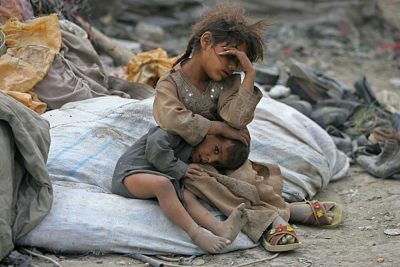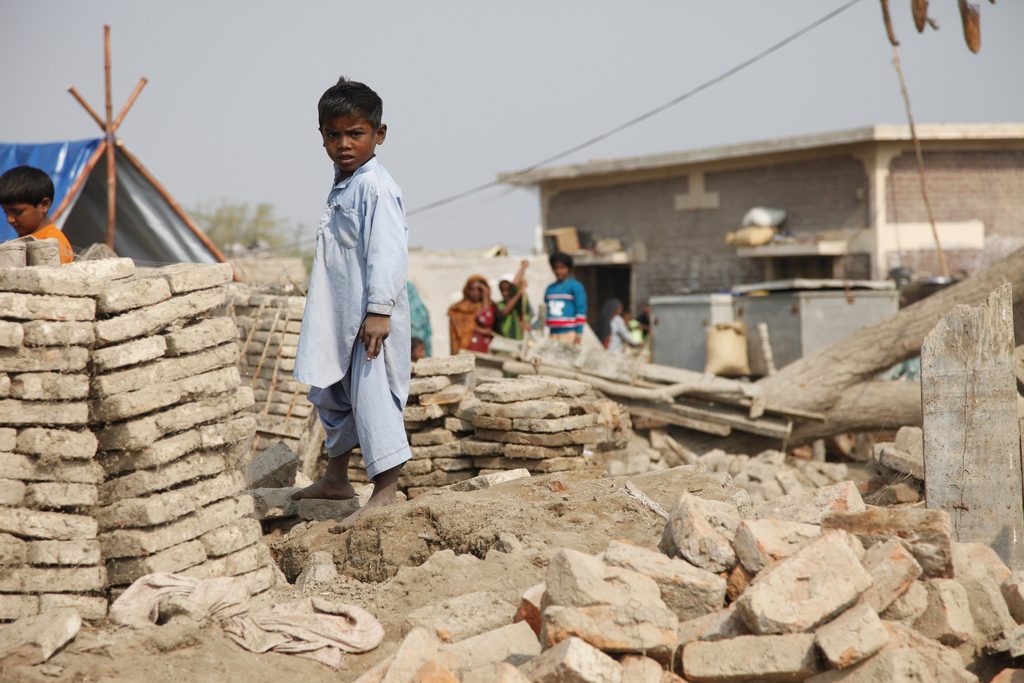By
Zeeshan A. Shah
If you wish to thrive for 100 years, then educate your Children – Dalai Lama
In a recent UN report on Sustainable Development Goals –SDGs, Pakistan has been identified as having one of the worst indicators in Education Development. It has saddened many of us to know that the country ranks below standard as millions of Out of School Children still struggle for basic primary education with little or no early childhood development, leading to a Generation Crisis.
The report further identified that Pakistan is 50+ years behind in its primary and 60+ years behind in its secondary education targets. A further 5.5 million children are out of secondary schools (48 per cent of lower secondary school age children). Pakistan also has a staggering 10.4 million adolescents out of upper secondary school.
This is criminal. The ASER 2014 survey, on which parts of the UN report are based, found that in rural Pakistan, the proportion of students in grade 6 who could read a grade 2 level story in local languages including Urdu, Sindhi or Pashto was 65 per cent while among all children aged 10 (the theoretical grade 6 age) the share was much lower at 31 per cent. Children cannot read in their local language. Pakistan, though, is not alone in missing its education targets with much of the world set to overshoot its deadline by more than half a century, the United Nations Global Education Monitoring Report 2016 said.
It added that 40 per cent of the world’s students are being taught in a language that is not their mother tongue. In Pakistan, where there is an absence of Justice related to implementation of Child Labor and Protection Laws, Out of School Children pose a grave rising threat to the overall population within the country. There is also a wide gulf between school completion rate and education attainment between the rich and poor; urban and rural based and between boys and girls. Poor rural males have a literacy rate of 64 per cent, but their female counterparts pale in comparison with 14 per cent.
Major factors impacting Education include Fewer Allocation of Funds from the Government to this sector and poor accountability of allocated funds with Pakistan committing on 11.3% against a benchmark of at least 15%. Considering the state of emergency in this sector, allocation of 20-25% is necessary in the bare minimum. Another major factor is the unstable safety and security situation in the country where between 2009 and 2012, over 1000 or higher education related attacks took place due to war and conflict in the region.
According to the UNESCO Director-General Irina who recently stated that :
“The power of education is our message today. Education saves lives, education is the path to sustainability. This is why we need to act in new ways, to put education first. People do not live their lives in silos — their education is not separate from their health, environment, jobs, sense of security. We need education to be at every table, in peace-building, in urban planning, in healthcare.” One of the reasons why children are not being educated in Pakistan is the “Systematic Discrimination”, maybe because they are from different ethnic groups, religious beliefs or refugee status and even gender discrimination.
These findings are severe and highly impact the country where we have issues like Corruption, Bad governance and War Zones. The world’s poorest countries are projected to achieve universal primary education more than 100 years later than the richest countries. By achieving upper secondary education by 2030 will likely increase the per capita income by 75 % lifting over 60 million people out of poverty. Pakistan has been largely marginalized due to weak policy measures to address this menace.
Moving towards the next Millennium Development deadline next year, Pakistan now Ranks Number 3 on the Global Slavery Index, a worldwide report that indicates the deteriorating Human Rights scenario in emerging nations. A weak economy, poor law and order, corruption and a rising population are all factors that affect the country, impeding growth and reducing development to marginal levels.
DFID photo
Many citizens of Pakistan are bonded laborers. Men, Women and Children from the rural communities who travel to big cities to find work are in countless numbers as industry hires them illegally. Over 1.8 million people are bonded laborers in Pakistan. Overseas voluntary migration is also rising. Many adult Pakistani men and women migrate voluntarily to the Gulf states, Iran, Turkey, South Africa, Uganda, Maldives, Greece and other European countries for low skilled employment such as domestic work, driving or construction work, falling victim to fraudulent recruiting practices by illegal labor agents: coercion, non-payment of wages, withholding of passports and physical abuse.
The Federal Bureau of Statistics in Pakistan estimates 3.8 million children between the ages of five and 14 are working in Pakistan. This number is actually much higher in reality due to lack of fully available data. There are reports of children subjected to forced labor, begging and sexual exploitation in Pakistan, and forcible recruitment into extremist and non-state militant groups where they suffer physical, sexual and psychological abuse.
Cultural practices due to lack of education also play a significant role in modern slavery in Pakistan. Individuals belonging to lower kinship groups among Muslims and scheduled castes among Hindus are particularly vulnerable. Additionally, Vaani and Swara are still practiced. These practices are methods of settling blood feuds between clans by forcing a young girl to marry a man from the enemy clan. Attributable to this, there are high rates of forced marriage of women and girls. This system is seen and practiced openly known to all but the rulers and the government endorses this as legitimate and has always failed to prescribe any action or devise a comprehensive policy to curb this menace.
A classic example of the high level of illiteracy in the country is the Child Marriages Restraint Act 1929 which states the legal marriageable age of females as 16, two years younger than the international minimum. Males cannot legally be married until 18, highlighting obvious gender discrimination. Sharia law however uses puberty as a criterion for marriage and does not specify any age. This conflicts with provisions of the Child Marriages Restraint Act making the law hard to implement and therefore being largely ineffective as prevalence of child marriage persists. Under such deplorable conditions, a lot more efforts need to be done to save the people from slavery.
We are taking our next generations into Slavery as we refuse to educate them honestly. The budget allocated by the Government of Pakistan to respond to modern slavery is not known. The responsibility for labor inspections sits with provincial governments since devolution of central responsibility in 2010, and the mandate of labor inspectorates differs from province to province under local laws. There is a lack of clarity in available information about the status of this process, and how much responsibility provincial governments have taken for anti-slavery initiatives. Generally poor labor conditions, a lack of enforcement of labor laws and standards, and high levels of corruption persist.
Laws are there but never implemented and the education sector is one of the most corrupt sectors in Pakistan, riddled with toxic bureaucracy and political intervention where corrupt officials are not being penalized by the higher authorities. Recent scientific evidence has emerged in Pakistan which identified the immense rise in the percentage of Mental Disorders in the younger generations due to the age old practice of same family marriages- another example of illiteracy and lack of basic education for the mass majority. This has to be prevented.
Pakistan has a huge potential but a large number of graduates end up leaving the country due to lack of local opportunity and congenial environment to work and thrive.
Tears of shame for a proud Muslim Nation where we fail our children and do not try and stand up for the Basic Education Rights of the Child.




JazakAllah. This is an eye opening and saddening article. But eye opening to us,not to those who have reigns of the government. Nothing is done to promote the children educationally. Those who have loyalties and sympathies with the country, have the pain to ponder but alas without authorities, and those who have powers and authorities, least bother to elevate and promote the country. This is the tragedy of the country, a wailing catestrophy!